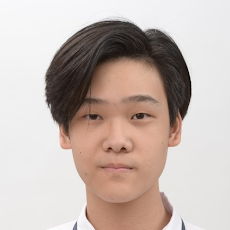| Students with Special Educational Needs | |
|
|
- 9am - 5pm
- From monday to friday
- [email protected]
- (613) 801 6885


Online - Ontario - Canada




* do not choose if you are a full-time student. Full-time students receive tutoring for free.
SIn this unit, students will acquire the skills to articulate the processes integral to social science research, particularly in the context of studying societal change. Emphasis will be placed on developing an understanding and appreciation for the pivotal role that the study of change plays in contemporary social sciences. Additionally, students will learn the practical application of this knowledge by mastering the creation of a comprehensive research plan. This plan will serve as a framework for investigating a specific topic related to social change, fostering both theoretical understanding and practical research skills.
In this unit, students will refine their research and inquiry skills by delving into the challenges faced by individuals within the home environment. A focus will be placed on discerning the key distinctions between primary and secondary sources of information. Additionally, students will explore the influential forces shaping an individual's behavior from early socialization through adolescence. This unit aims to cultivate an appreciation for the dynamic changes occurring within individuals and how these transformations impact the values and attitudes of society as a whole.
In this unit, students will refine research and inquiry skills, emphasizing the recording and organization of information for social science research. They will also learn to actively engage with and contribute to their school and community. The exploration of current trends in Canadian society will be approached through different theoretical perspectives.
In this context, students will gain the ability to articulate the impact of behavior and the construction of ideas within the Canadian context. They will also delve into research and inquiry skills, specifically focusing on recording and organizing information essential for social science research. Additionally, students will develop an understanding of how to actively engage and participate in their school and community. This multifaceted approach aims to empower students with a comprehensive understanding of societal dynamics while fostering practical research and engagement skills.
In this unit, students will gain knowledge of the foundations of social change, with a focus on understanding the substantial technological forces that drive these changes. The unit will specifically explore how these technological influences impact Canadian teenagers. Students will develop the ability to describe the societal impact of technological changes and comprehend how Canadians are affected by these shifts. Additionally, students will cultivate research and inquiry skills, enabling them to interpret, synthesize, and analyze research findings, with practical applications to their own investigations. Furthermore, the unit will equip students with the skills to leverage social media for advocating issues or causes they are passionate about.
.
In this unit, students will delve into the examination of cultural, economic, and political globalization, understanding the ways in which the associated changes resonate in Canada. The focus will be on describing social change and its attendant challenges and discerning their implications for Canadians and global citizens. Topics such as multinational corporations, human rights, and global cultural trends will be explored, with an emphasis on understanding how social theorists interpret global social changes. Students will further cultivate research and inquiry skills, enabling them to effectively communicate the results of their social science research. Additionally, they will develop the ability to express their perspectives on a global issue important to them through written or visual communication.
Rich Task Summative: 30%
This summative task, allocated at the conclusion of the course, serves as a comprehensive assessment integrating various expectations covered throughout. It is designed to evaluate a student's ability to demonstrate understanding not only through the final product but also through conversation and observation, offering a holistic measure of their grasp on the course expectations.

Overrall expectations
By the end of this course, students will:
By the end of this course, students will
By the end of this course, students will
By the end of this course, students will
Unlock your potential and join KAI Global School for an enriching educational journey ahead!


Assessment for learning will directly influence student learning by reinforcing the connections between assessment and instruction, and provide ongoing feedback to the student. Assessment for learning occurs as part of the daily teaching process and helps teachers form a clear picture of the needs of the students because students are encouraged to be more active in their learning and associated assessment. Teachers gather this information to shape their teaching environment.
Assessment for learning is:
The purpose of assessment for learning is to create self-regulated and lifelong learners.
Grade 12 HHS4U, Families in Canada examines issues and challenges facing individuals and families in Canada’s diverse society. In this course, students will draw on sociological, anthropological and psychological theories and research to examine factors affecting families and assess policies and practices intended to support Canadian families.Social sciences and humanities courses focus on the use of disciplined, structured inquiry to understand human beings, human behaviour, and human nature. These courses promote the use of reason as part of the structured inquiry process, while also recognizing the limitations of reason as a way of learning, knowing, and understanding.
| Percentage of Final Mark | Categories of Mark Breakdown |
| 70% | Assessments of Learning Tasks Throughout the Term |
| 30% | Final Written Examination And/Or RST |
A student’s final grade is reflective of their most recent and most consistent level of achievement.
The balance of the weighting of the categories of the achievement chart throughout the course is:
| CHALLENGE AND CHANGE IN SOCIETY | Knowledge | Inquiry/Thinking | Communication | Application |
| 100% | 20% | 30% | 20% | 30% |
Cheating and Plagiarism
KAI global school commits to having policies for assessments that minimize the risk of cheating. We also commit to begin each course with refresher learning on academic integrity.
In the event of incidences of academic dishonesty, the student, Academic Director (and, in the case of students under 18, their parents) will be notified of the occurrence, of the consequence, and of the potential consequences of subsequent incidents.
Improper Citation
Grades 11 and 12
Unaccredited Paraphrasing
Grade 11 and 12
Unaccredited Verbatim
Grades 11 and 12
Full Plagiarism
Grade 11 and 12
Teachers will use a variety of instructional strategies to help students become independent, strategic and successful learners. The key to student success is effective, accessible instruction. When planning this course of instruction, the teacher will identify the main concept and skills of the course, consider the context in which students will apply their learning and determine the students’ learning goals. The instructional program for this course will be well planned and will support students in reaching their optimal level of challenge for learning, while directly teaching the skills that are required for success.
Understanding student strengths and needs will enable the teacher to plan effective instruction and meaningful assessments. Throughout this course the teacher will continually observe and assess the students’ readiness to learn, their interests, and their preferred learning styles and individual learning needs.
Teachers will use differentiated instructional approaches such as:
During this course, the teacher will provide multiple opportunities for students to apply their knowledge and skills and consolidate and reflect upon their learning.
The teacher in this course is the key educator of students with special education needs. The teacher has a responsibility to help all students learn, and will work collaboratively with the guidance counselor, where appropriate, to achieve this goal. In planning this course, the teacher will pay particular attention to the following guidelines:
The teacher will use the following strategies:
| Students with Special Educational Needs | |
|
|
In planning this course for students with linguistic backgrounds other than English, the teacher will create a safe, supportive, and welcoming environment that nurtures the students’ self-confidence while they are receiving course instruction. Most English language learners who have developed oral proficiency in everyday English will nevertheless require instructional scaffolding to meet curriculum expectations. The teacher will adapt the instructional program in order to facilitate the success of these students in their classes. Appropriate adaptations and strategies for this course will include:
| Students with English as Second Language | |
|
|
KAI global school will promote active and engaged citizenship, which includes greater awareness of the distinct place and role of Indigenous (First Nation, Métis, and Inuit) peoples in our shared heritage and in the future in Ontario.
KAI global school will:
ICT tools will be integrated into this course for whole-class instruction and for the design of curriculum units that contain varied approaches to learning in order to meet diverse needs and interests of the students in this class. At the beginning of this class, all students will be made aware of issues related to Internet privacy, safety, and responsible use, as well as of the potential for abuse of this technology, particularly when it is used to promote hatred. ICT used in this course will include:
| Information and Communication Technology | |
|
|
The knowledge and skills students acquire in this course will be useful in helping students recognize the value of their education and applications to the world outside of school and identify possible careers, essential skills and work habits required to succeed. Students will learn how to connect their learning in asking questions and finding answers to employable skills.
During this course the teacher will:
The teacher will support students in this course in education and career/life planning by providing them with learning opportunities, filtered through the lens of the four inquiry questions, that allow them to apply subject-specific knowledge and skills to work-related situations; explore subject-related education and career/life options; and become competent, self-directed planners.
Lorem ipsum dolor sit amet, consectetur adipiscing elit.

I love the freedom of self-studying. I can work on my own time. I also have a flexible schedule and super supportive teachers.

Besides the fact that Kanata Academy International helped me to enlarge my field of knowledge and be eager to learn, what I love most about it is how understanding and kind the teachers are. Their motivational words and their encouragement helped me more than anything to develop self-confidence, discover my strengths and work on my weaknesses.

I love everything about KAI; especially the assignments in the courses. My teachers always ask me to do interesting projects and presentations… I felt a sense of achievement every time I completed my work. I also felt so energized and motivated when receiving encouraging feedback from my teachers. The kind of assessments I did at KAI really encourages me a lot.

Kanata Academy International has given me the chance to explore my academic abilities and excel in all the courses. The teachers are very supportive and kind, and they were by our side until the end. I am grateful for this wonderful learning experience!
Explore endless opportunities with us. Contact us now for exciting collaborations!
